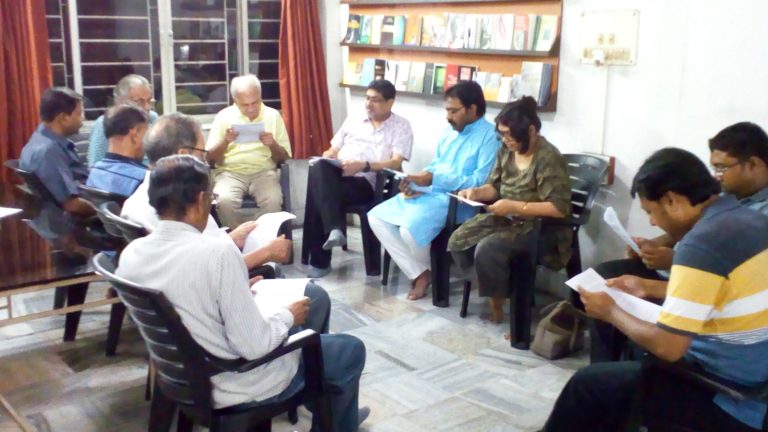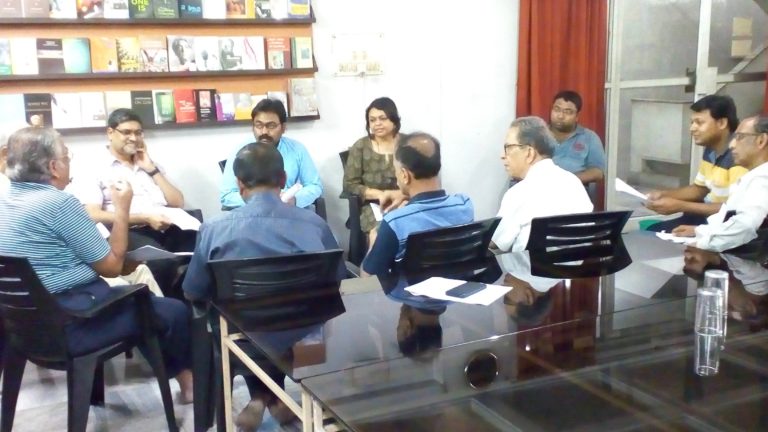6 October, 2018. There was an interesting interaction at our Centre on ‘Freeing the mind from conditioning’. We had ten participants and as the interaction gathered momentum, we realised that nearly two hours had passed. A short video was screened and three texts were given out for home reading.
It is always difficult to put together a summary of discussions during a group interaction. The conversation flow is diverse and varies widely from person to person. That is to be expected as we are all trying to probe something that is subtle. Much of the ‘work’ of reflection happens after the interaction when we ponder over the flow of points, statements and questions that came up during the interaction.
However, there are some points that seemed to come up a lot this during the interaction. There may be more observations and I hope some of you who read this will share them. But here for a start are some of the key points that came up more than once.
‘Conditioning’ and ‘me’ are the same. Isn’t this in a sense absolutely vital in the understanding of conditioning? Most of us see conditioning as separate from “me” but are the two separate?
‘Conditioning’, the ‘me’ is the product of time, thought, memory, the past. Absolutely vital in the understanding of conditioning.
Is conditioning the sum total of the whole recording, the program stored in our brain over time and thus very much the past?
Conditioning cannot be dissolved through effort, through time. Perhaps a way of saying that conditioning cannot act on itself. The “me” cannot act on the “me”. So, what is it that can act? Is it a seeing in which time is absent? A seeing in which the past is absent?
When responding to a question on how one can be free of conditioning, Krishnamurti had referred to the network of escapes, attachment and thought. A trinity that provides sustenance to conditioning. A trinity that prevents the understanding of WHAT IS and that also prevents FREEDOM. Here below is the extract.
“Only by understanding, being aware of our escapes. Our attachment to a person, to work, to an ideology, is the conditioning factor; this is the thing we have to understand, and not seek a better or more intelligent escape. All escapes are unintelligent, as they inevitably bring about conflict.
To cultivate detachment is another form of escape, of isolation; it is attachment to an abstraction, to an ideal called detachment. The ideal is fictitious, ego-made, and becoming the ideal is an escape from what is.
There is the understanding of WHAT IS, an adequate action towards WHAT IS, only when the mind is no longer seeking any escape. The very thinking about WHAT IS is an escape from WHAT IS.
Thinking about the problem is escape from the problem; for thinking is the problem, and the only problem. The mind, unwilling to be what it is, fearful of what it is, seeks these various escapes; and the way of escape is thought. As long as there is thinking, there must be escapes, attachments, which only strengthen conditioning.
Freedom from conditioning comes with the freedom from thinking. When the mind is utterly still, only then is there freedom for the real to be.”
FOR REFERENCE
Here below are the links of the video that was screened and the texts that were given to participants.
Video. Question put to Krishnamurti at Ojai in 1981 on the ill effects of conditioning. 33 minutes.


